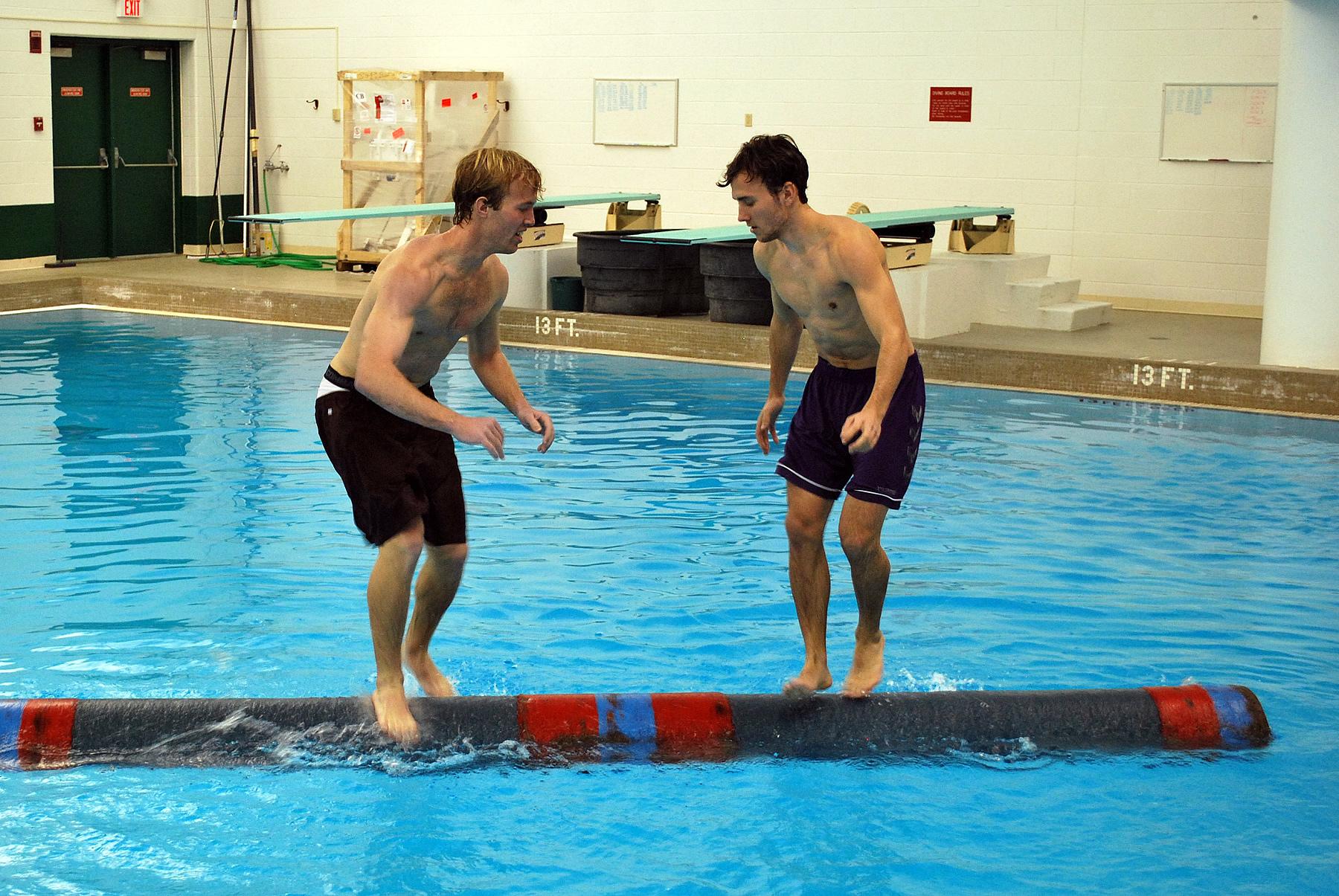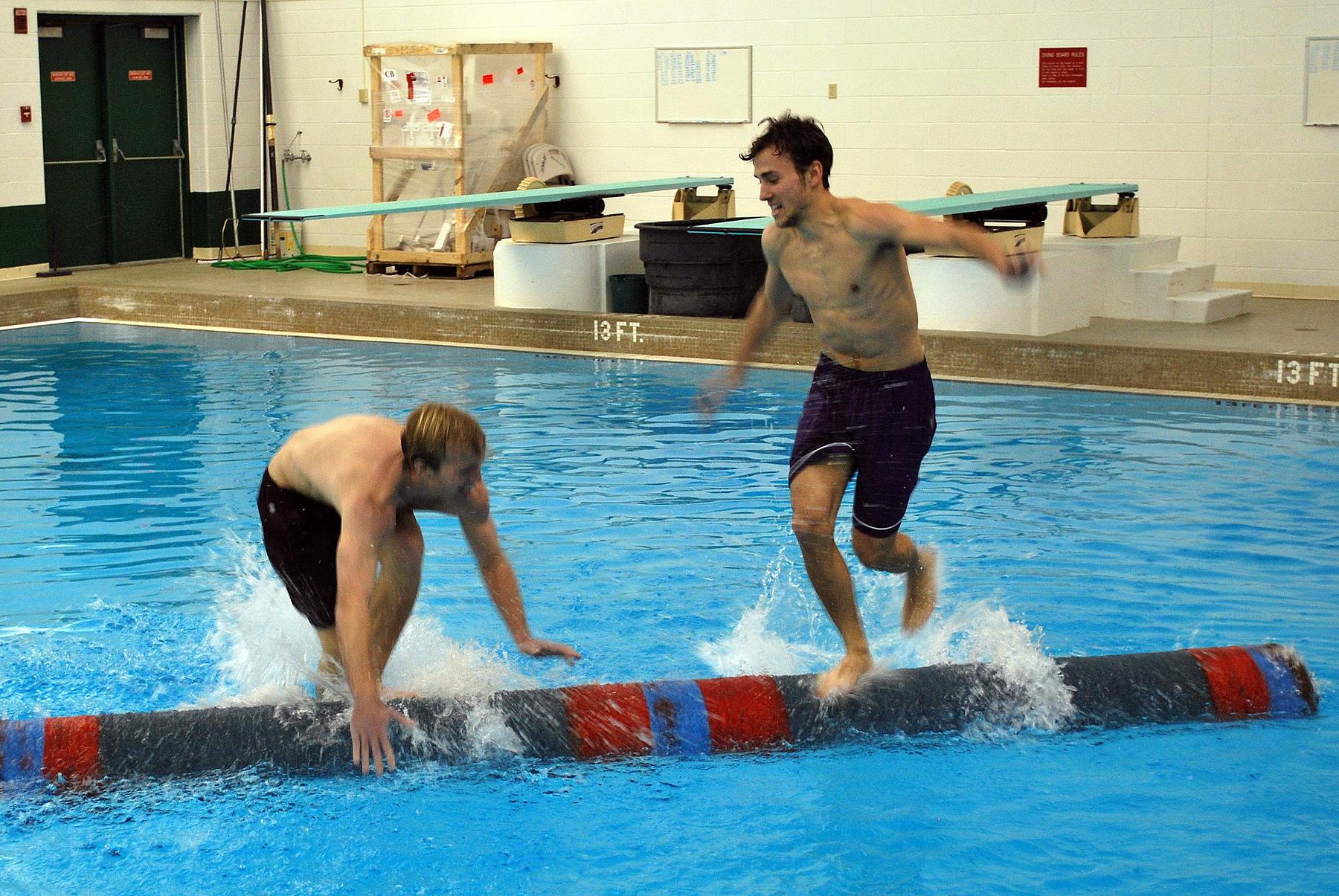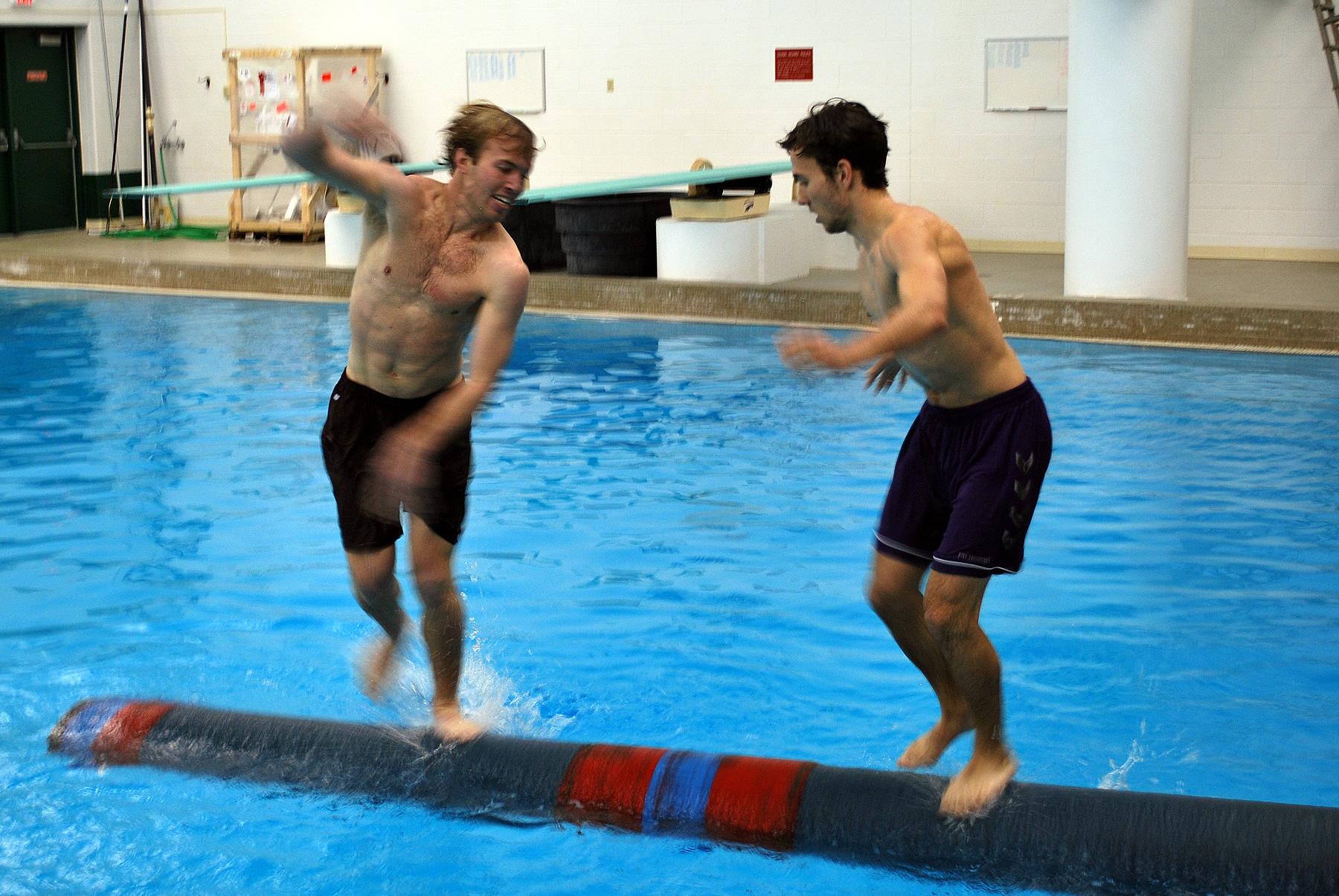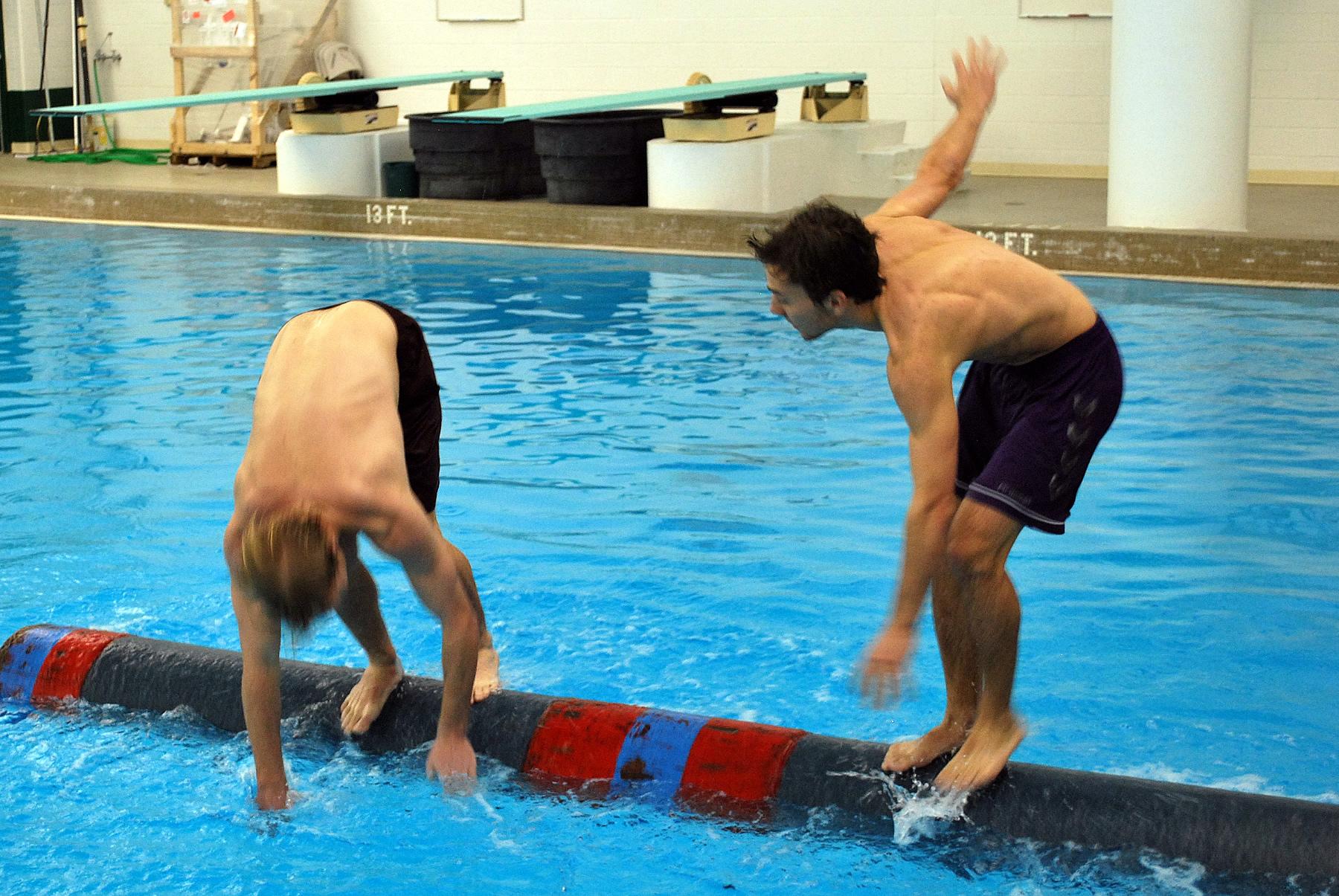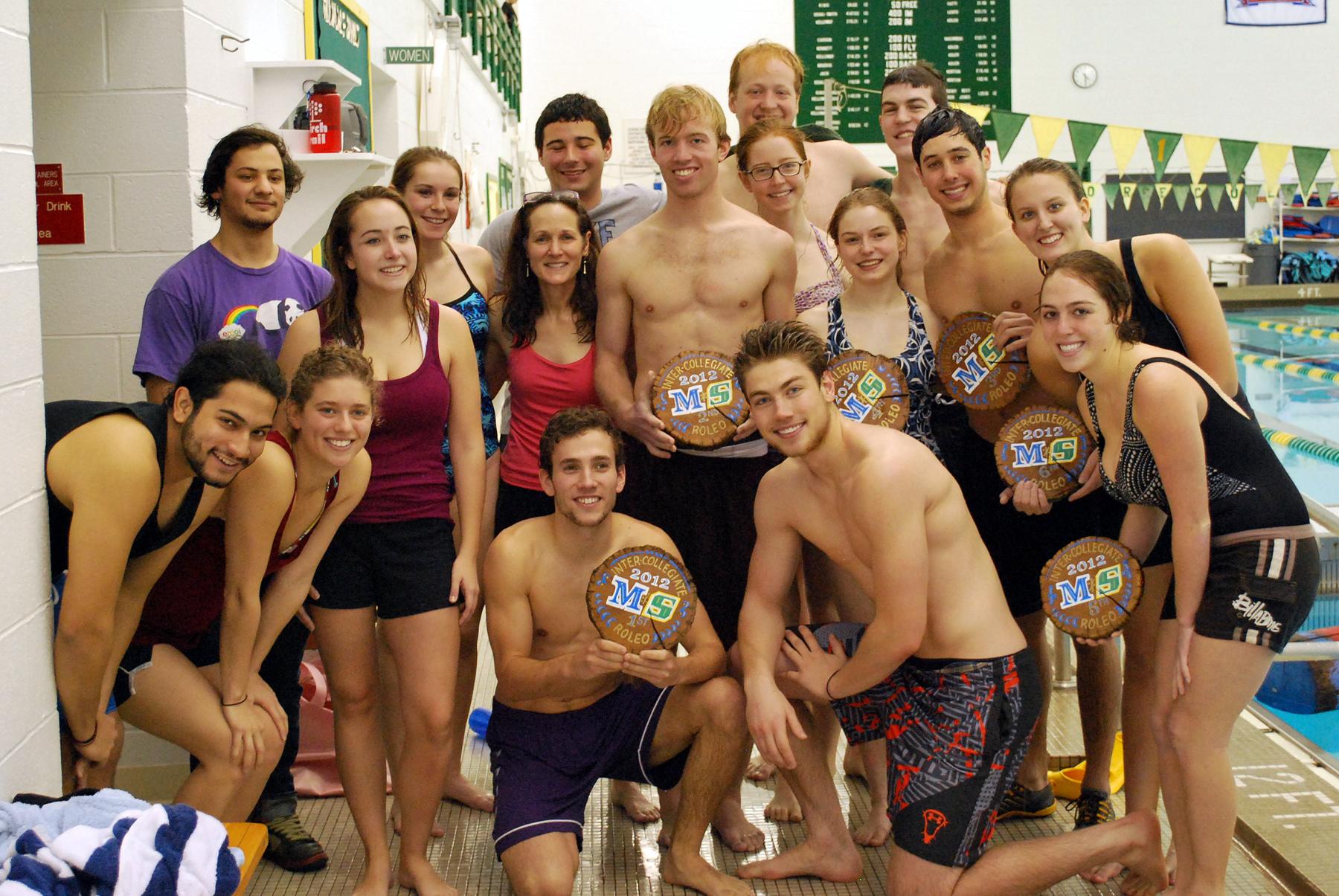Balancing act
Believed to be the only two colleges in the country that have competitive log rolling programs, Skidmore and Middlebury squared off Sunday in the first intercollegiate ‘roleo’.

Will Hoeschler updates the brackets.
Just as Princeton met Rutgers in the first-ever intercollegiate football game in 1869, Skidmore College met Middlebury Sunday in the first-ever intercollegiate competition in log rolling.
At least everyone thinks it’s the first.
While there are many college lumberjack teams that compete in woodsy skills like ax
throwing, pole climbing, chopping and sawing, Skidmore and Middlebury appear to be
the only colleges in the country that have teams dedicated solely to log rolling.
And this was their first “roleo.”
Middlebury’s program was established in 2004 by Lizzie Hoeschler, a world-caliber
log roller who was taught the sport at any early age by her mother, Judy Scheer-Hoeschler,
a seven-time log rolling champion in La Crosse, Wisc., who taught log rolling for
many years at the local YMCA. Lizzie’s two sisters, Kate and Abby, also were raised
by their mother to be world-caliber log rollers. They also attended Middlebury and
helped to build the program their sister started.
Skidmore’s program was established just this fall by Will Hoeschler, Judy’s son and
a junior theater major. Introduced to the sport at age four, Will has won three age
class world titles in log rolling (at six, 13, and 17), and has competed twice in
the tournament’s elite division. Will also has three world titles and a world record
in boom running, in which competitors run across a string of floating logs attached
end-to-end.
All of Skidmore’s log rollers other than Will are new to the sport and still learning
its fine points. Nevertheless, Hoeschler invited the more experienced Middlebury team
to the competition because he thought it would be both a good learning opportunity
and fun. It was both. Middlebury took five out of the top six spots. To no one’s surprise,
Hoeschler took first, defeating Middlebury junior John Wyman in a hard-fought final.
In log rolling, the two competitors stand on opposite ends of a 12-foot, 400-pound
red cedar log and spin it by running forward and backward in short, choppy steps.
Experienced log rollers learn to unbalance their opponents through various techniques,
such as sudden acceleration. If you send your opponent into the drink three times
in five attempts, you win your match and move up the ladder.
"The first rule is never stop moving your feet, like on a treadmill, but faster,"
Hoeschler said. "Stay low with bent knees, and resist the urge to look at your feet,
because that makes you tip forward. Look down the log at the other person's feet.
That gives you better focus."
“One wrong move and – boom ¬– you're in the water,” he adds. “It brings out your fight-or-flight
response."
The log on which the Middlebury and Skidmore teams waged Sunday’s contest was wrapped
in a water-resistant carpet to give the competitors sufficient traction to compete
barefoot or in aquatic shoes, rather than in spikes, which are the norm in professional
competitions. It was Will’s mother, Judy, who – wanting to make the sport appealing
to YMCA pool directors – came up with this innovation in the early 80s.
Continuing to innovate in the sport, the Hoeschlers have developed the first synthetic
log-rolling log – called the “Key Log” – which weighs just 60 pounds out of the water
and is as easy to transport as a kayak. Abby Hoeschler is the chief executive officer
of the Minneapolis-based firm that’s marketing the log, which Will says he hopes to
introduce to his Skidmore teammates soon.
Other members of the Skidmore team who competed were Sam Shapiro ’16, Gokul Bashi
’14, Alex Orthwein ’13, Emily Moler ’15, Will Clark ’16, Chris Coughlan ’15, Sean
Carfi ’15 and Rebecca Baruc ’15.
